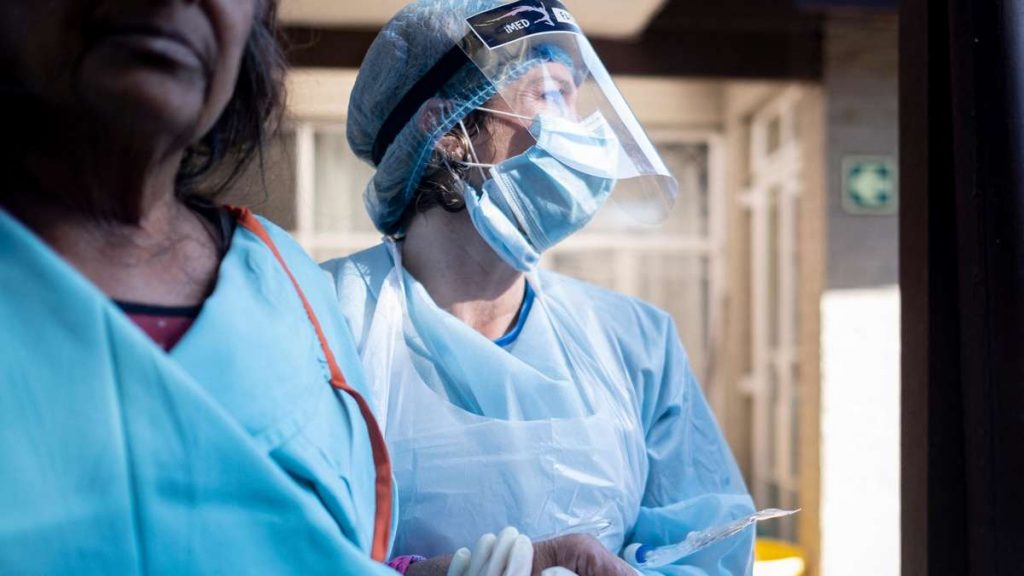-
fromPamela Doerhofer
Close
C.1.2 contains a remarkably large number of mutations, but so far is only responsible for a small portion of the infection
And again a new type of Sars-CoV-2 appeared: in South Africa, a research team from the National Institute of Infectious Diseases and several South African universities discovered a strain called “C.1.2” that carries a particularly large number of mutations. Some are already known from other variants such as delta. The scientists wrote that the C.1.2 variant has been detected in all provinces of the country, but so far it has made up only a small part of the infection rate – albeit with an increasing trend.
Much is still unknown about this variant. It is not yet possible to say whether C.1.2 is more contagious and causes more severe disease if infected – and whether it is able to dislodge the delta variant also prevalent in South Africa. The study, “The Continuing Evolution of Sars-CoV-2 in South Africa: A New Strain with Rapid Accumulation of Mutations of Concern and Global Discovery,” was published on Medrxiv and has not yet been independently evaluated.
C.1.2 is said to have accounted for 0.2 percent of virus genomes detected and sequenced in the laboratory in South Africa in May 2021. The value was said to have risen in June to 1.6 percent and in July to two percent. This seems very insignificant, but the delta variable currently prevalent in many countries started with such low values. It is said that the variant has already appeared in other countries of Africa, in Europe – including Switzerland and Great Britain, but not in Germany – in China and New Zealand. The World Health Organization (WHO) has not yet classified C.1.2 as a “variable of concern” (eg alpha, beta, gamma and delta) or a “variable under observation”.
The South African research team identified an average of 41.8 mutations per year for C.1.2, while the other variants show an average of ‘only’ 25 genetic changes per year. This means that the mutation rate in C.1.2 will be about 1.7 times. Some of the mutations affecting spike protein C.1.2 are said to have previously occurred in other variants, including beta, gamma, and alpha. Some of these changes could improve the virus’s ability to bind to human cells. There are also mutations in common with the delta variant.
One concern is that some of the additional genetic changes detected in C.1.2 could further impair the protection offered by vaccination or previous infection than the delta variant. “It may be that these mutations affect properties that enable the virus to evade an immune response or make it more contagious,” said virologist Megan Stein from Central Sydney Medical School in an article in The Guardian. In order to get Delta out of the way, however, the variator has to be “very good, very fit and convertible very quickly,” the scientist admits. Because of this, the beta failed in South Africa, and it was brought back by Delta. So the C.1.2 variant will likely die out again, Megan Stein says.
The study authors from South Africa stress that further investigations are necessary in order to understand the specific effects of the mutations identified in c. It may be removed as a result.

“Tv expert. Hardcore creator. Extreme music fan. Lifelong twitter geek. Certified travel enthusiast. Baconaholic. Pop culture nerd. Reader. Freelance student.”







More Stories
“The kind of stone we were hoping to find.”
How to calm yourself!
Plan a cheap moon settlement from Vienna